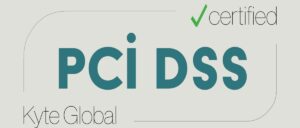Franklin Templeton’s Notes from the Trading Desk offers a weekly overview of what our professional traders and analysts are watching in the markets. The European desk is manned by eight professionals based in Edinburgh, Scotland, with an average of 15 years of experience whose job it is to monitor the markets around the world. Their views are theirs alone and are not intended to be construed as investment advice.
The Digest
Last week saw a strong end to the month, which helped many equity indices claw back some of the first half of year (H1) losses and have their best monthly performance for some time. There was a glut of corporate earnings and some better-than-expected results from index heavyweights in the United States helped sentiment. In addition, following the Federal Reserve (Fed) meeting, we saw a scaling back in market expectations for central bank rate hike paths. On the week, the MSCI World Index traded up 3.6%, the STOXX Europe 600 Index was up 3%, the S&P 500 Index was up 4.3% and the MSCI Asia Pacific Index was up 0.4%.
Fed pivot?
Last Wednesday’s Fed meeting was a key focus for investors given the aggressive path higher rates have followed in recent months. The Fed raised rates 75 basis points (bps) to 2.5% as expected, but Chair Jerome Powell’s commentary gave some hope that the rate hikes may not be as aggressive going forward. Notably, Powell said that future large rate hikes are possible but would be dependent on data, and that the Fed was close to the neutral rate range. He also described the 75 bps move as “unusually large” and—to be clear—did say another such hike could be warranted at the next meeting. However, the market is now pricing the year-end federal funds rate at 3.32%, vs. expectations of 3.68% earlier in July.
This change in market sentiment caused US Treasury yields to further tighten. The US 10-year bond declined 10 bps to 2.65%, down from 3.5% in June. Technology and growth stocks continued to recover ground last week amid the drop in yields.
Some question how much of a pivot this really is. Franklin Templeton Fixed Income CIO Sonal Desai was quoted in the Financial Times as saying, “Financial markets heard only what they wanted to hear and ignored the rest. I think the stage is set for a correction and more volatility ahead.”
In addition, over the weekend, Fed Reserve Bank of Minneapolis President Neel Kashkari made some fairly hawkish comments: “We are committed to bringing inflation down and we’re going to do what we need to do… We are a long way away from achieving an economy that is back at 2% inflation, and that’s where we need to get to.”
European gas concerns
Headlines around gas supply continued to be the focus last week for European markets, with Russia reducing Nord Stream 1 gas supply to 20% (from 40%). European gas prices increased 30% over the past five days. The European Union (EU) confirmed a plan for member states to reduce gas consumption by 15%. This is only on a voluntary basis after number of countries pushed back on the original idea, demonstrating the challenges of coordinating energy policy across the block.
Some countries have made progress diversifying away from Russian gas. Italy has reduced its demand for Russian gas from 40% to 25% in recent months as it turns to imports from North Africa.
Germany increased non-Russian liquified natural gas (LNG) imports but remains heavily exposed. Last week a number of German regions took steps to reduce consumption. Measures such as banning hot water in public buildings, closing certain swimming pools, and dimming some street lighting (amongst others) were announced. The International Monetary Fund (IMF) estimated that Germany is at risk of losing 4.8% of economic output if Russia halts gas supplies, and the Bundesbank has suggested the potential damage could total €220 billion (US $225 billion).
Given this backdrop, we have seen some economists lower their outlook for the eurozone.
The week in review
United States
US markets saw a strong end to the month, with the S&P 500 Index up 4.3% and the Nasdaq 100 Index up 4.4%. The S&P 500 gained 9.1% in July—its best month since November 2020—and the NASDAQ 100 gained 13%, its best month Since April 2020.
Lower bond yields helped last week’s Nasdaq strength, along with reassuring earnings reports from Amazon and Apple.
Energy stocks also advanced last week on the back of positive reports from Exxon and Chevron, which posted their highest-ever profits, benefitting from higher commodity prices.
In a risk-on environment, the defencives were left behind last week, with consumer staples and health care lagging a bit, albeit still positive on the week.
Looking to macro data, US second quarter (Q2) gross domestic product (GDP) created a lot debate. The number was worse than expected, with the US economy contracting -0.9% quarter-over-quarter (Q/Q), after contracting 1.6% in the prior quarter. Two quarters of decline is a key feature of a technical recession, but there has been debate over whether the United States is actually in one given other strong fundamentals in the economy. Republicans described the data as confirmation of “Joe Biden’s recession” but the National Bureau of Economic Research has not yet confirmed a recession. US Treasury Secretary Janet Yellen said she would be amazed if this was declared a recession, as the economy isn’t seeing significant job losses.
Europe
European equities also saw strong performance last week, as the STOXX Europe 600 Index gained 3%, and was up 7.6% for the month. Italian equities led the way higher, (with the country’s benchmark index up 5.6%). Far-right leader Giorgia Meloni currently leads in the polls, and she said she would abide by EU budget rules if she were to win. The Italian 10-year bond yield is now below 3% for the first time since May.
German equities lagged as Russia cut gas supply via Nord Stream 1 back down to 20% (having restarted at 40% the prior week).
In terms of macro data, second-quarter GDP data from Europe was a little more positive than expected, helping markets rally into month-end. Eurozone growth came in at 0.7%. Spain, France and Italy all saw better-than-expected GDP data as the tourism season helped boost economic activity. European inflation was a touch higher than expected though; the eurozone Consumer Price Index (CPI) for July rose to 8.9%, vs 8.6% previously.
Worth noting, European equity outflows continued last week, making it 24 weeks of outflows.
Looking back at the month of July, markets clearly saw a strong rebound after a torrid first half. There is much debate around to what extent this move was a “pain trade” higher, as investors were positioned so bearishly at the end of the first half. Into month-end, some of the most-shorted European names got squeezed aggressively, whilst the year-to-date outperformers, such as defence, lagged. This suggests to us that there was a positioning-led squeeze into month-end.
From a European perspective, challenges remain as the European gas crisis remains front and centre going into winter. From a global perspective, the IMF last week noted risks to economic outlook remain “overwhelmingly tilted to the downside” and downgraded 2022 global GDP to 3.2% (down 0.4% from the prior forecast).
Asia
Asian equities were mixed last week, but the MSCI Asia Pacific still managed to close up 0.4% overall.
Equities in China closed down 0.5% last week, with the government reiterating its zero-COVID policy. Geopolitical tensions with Taiwan also weighed on the market. China still views Taiwan as a province of China and unification is a key goal of China’s President Xi.
The technology sector in Asia was weaker towards the end of the week following reports that Jack Ma is to cede control of Ant Group. Alibaba closed the week down 9% on the news.
The week ahead
Monday 1 August
- Eurozone manufacturing PMI; unemployment rate
- Germany retail sales
- US S&P manufacturing Purchasing Managers Index (PMI); construction spending; Institute for Supply Management (ISM) manufacturing
- South Korea CPI
Tuesday 2 August
- US JOLTS job openings
- China Caixin PMI
- Reserve Bank of Australia meeting (50 bps hike expected)
Wednesday 3 August
- Eurozone PPI; retail sales
- US mortgage applications; S&P services and composite PMI; durable goods; factory orders; ISM services
Thursday 4 August
- Bank of England Meeting (50 bps hike expected)
- Germany factory orders
- US trade balance; jobless claims
- Japan household spending
- European Central Bank economic bulletin
Friday 5 August
- Germany Industrial Production (IP)
- France IP
- Italian IP
- US July employment report
Franklin Templeton Key risks & Disclaimers:
What Are the Risks?
All investments involve risks, including the possible loss of principal. The value of investments can go down as well as up, and investors may not get back the full amount invested. Stock prices fluctuate, sometimes rapidly and dramatically, due to factors affecting individual companies, particular industries or sectors, or general market conditions. Bond prices generally move in the opposite direction of interest rates. Thus, as prices of bonds in an investment portfolio adjust to a rise in interest rates, the value of the portfolio may decline. Investments in foreign securities involve special risks including currency fluctuations, economic instability and political developments. Investments in developing markets involve heightened risks related to the same factors, in addition to those associated with their relatively small size and lesser liquidity.
Any companies and/or case studies referenced herein are used solely for illustrative purposes; any investment may or may not be currently held by any portfolio advised by Franklin Templeton. The information provided is not a recommendation or individual investment advice for any particular security, strategy, or investment product and is not an indication of the trading intent of any Franklin Templeton managed portfolio.
Past performance is not an indicator or guarantee of future performance. There is no assurance that any estimate, forecast or projection will be realised.
This article reflects the analysis and opinions of Franklin Templeton’s European Trading Desk as of 2 August 2022, and may vary from the analysis and opinions of other investment teams, platforms, portfolio managers or strategies at Franklin Templeton. Because market and economic conditions are often subject to rapid change, the analysis and opinions provided may change without notice. An assessment of a particular country, market, region, security, investment or strategy is not intended as an investment recommendation, nor does it constitute investment advice. Statements of fact are from sources considered reliable, but no representation or warranty is made as to their completeness or accuracy. This article does not provide a complete analysis of every material fact regarding any country, region, market, industry or security. Nothing in this document may be relied upon as investment advice or an investment recommendation. The companies named herein are used solely for illustrative purposes; any investment may or may not be currently held by any portfolio advised by Franklin Templeton. Data from third-party sources may have been used in the preparation of this material and Franklin Templeton (“FT”) has not independently verified, validated or audited such data. FT accepts no liability whatsoever for any loss arising from use of this information and reliance upon the comments, opinions and analyses in the material is at the sole discretion of the user. Products, services and information may not be available in all jurisdictions and are offered by FT affiliates and/or their distributors as local laws and regulations permit. Please consult your own professional adviser for further information on availability of products and services in your jurisdiction.
Issued by Franklin Templeton Investment Management Limited (FTIML) Registered office: Cannon Place, 78 Cannon Street, London EC4N 6HL. FTIML is authorised and regulated by the Financial Conduct Authority.
MeDirect Disclaimers:
This information has been accurately reproduced, as received from Franklin Templeton Investment Management Limited (FTIML). No information has been omitted which would render the reproduced information inaccurate or misleading. This information is being distributed by MeDirect Bank (Malta) plc to its customers. The information contained in this document is for general information purposes only and is not intended to provide legal or other professional advice nor does it commit MeDirect Bank (Malta) plc to any obligation whatsoever. The information available in this document is not intended to be a suggestion, recommendation or solicitation to buy, hold or sell, any securities and is not guaranteed as to accuracy or completeness.
The financial instruments discussed in the document may not be suitable for all investors and investors must make their own informed decisions and seek their own advice regarding the appropriateness of investing in financial instruments or implementing strategies discussed herein.
If you invest in this product you may lose some or all of the money you invest. The value of your investment may go down as well as up. A commission or sales fee may be charged at the time of the initial purchase for an investment. Any income you get from this investment may go down as well as up. This product may be affected by changes in currency exchange rate movements thereby affecting your investment return therefrom. The performance figures quoted refer to the past and past performance is not a guarantee of future performance or a reliable guide to future performance. Any decision to invest in a mutual fund should always be based upon the details contained in the Prospectus and Key Investor Information Document (KIID), which may be obtained from MeDirect Bank (Malta) plc.





